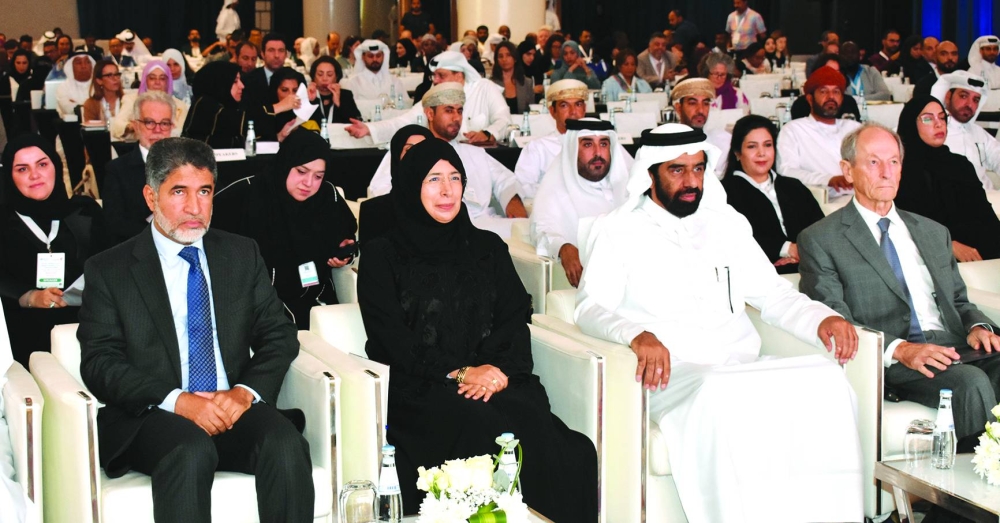Integrating health considerations into all aspects of city planning and development can forge a path toward holistic well-being, noted HE the Minister of Public Health Dr Hanan Mohamed al-Kuwari, Tuesday.
“Healthier cities necessitate a holistic approach through enhancing partnership and governance mechanisms that embody health and all policies of the government,” she told the opening of the Eastern Mediterranean Region Healthy Cities Conference 2023 organised by the Ministry of Public Health and the World Health Organisation.
“Our cities must cater to the well-being and inclusivity of all, including children and the elderly. We must champion urban designs that promote sustainability, safety, accessibility and mobility, fostering environments where individuals and communities can thrive,” Dr al-Kuwari explained.
The three-day conference aims to explore and scale up the healthy cities approach across the Eastern Mediterranean Region. The opening ceremony was also attended by HE Saleh bin Muhammad al-Nabit, President of the Planning and Statistics Authority and Chairman of the Permanent Population Committee; Dr Ahmed al-Mandhari, WHO regional director for the Eastern Mediterranean and senior officials and representatives of 15 countries of the region.
Dr al-Kuwari explained : “Qatar works to promote the health and well-being of the population and achieve sustainability, guided by the wise vision of His Highness the Amir, Sheikh Tamim bin Hamad al-Thani, and to achieve the Qatar National Vision 2030. The Healthy Cities programme serves the country’s efforts in this regard, and we are proud that Qatar is the first country where all municipalities received the title of Healthy City from the World Health Organisation, in addition to Qatar Foundation’s Education City being recognised as Healthy Education City and Qatar University as a Healthy University.”
The minister continued: “Qatar has adopted a policy of promoting health, equity, and sustainable development and translated it into strategic initiatives, policies and best practices by following the ‘Health in All Policies’ strategic priority. We are pleased that through this conference we can exchange knowledge and experiences with other countries of the Eastern Mediterranean Region and with WHO Healthy City Networks across various regions.”
Dr al-Kuwari noted that a culture of embracing innovation should be created to address current challenges, embracing the transformative potential of technology and artificial intelligence.
“We must find ways to harness digital solutions that promote health, mitigate harms, and uphold principles of well-being and sustainability. As the challenges of climate change grow increasingly predominant globally, we are now even more aware of the specific problems posed by the arid urban environments of many cities in the region. We must therefore aim to forge comprehensive and enduring solutions including innovative approaches to lower greenhouse emissions, improving air quality and championing sustainable urban green spaces,” she continued.
Dr al-Mandhari reiterated the Healthy Cities programme’s important role in creating a multisectoral platform for health promotion and well-being. He said: “Healthy Cities can contribute to accelerate the achievement of our regional and global objectives and our progress towards the health-related Sustainable Development Goals. They can also contribute to combat noncommunicable diseases and support the regional implementation of the new ‘Global framework for integrating well-being into public health utilising a health promotion approach’.”
In the keynote address, Prof Michael Marmot, director of the UCL Institute of Health Equity, University College London, spoke about healthy cities as a multisectoral platform to address the social determinants of health. Dr Tedros Adhanom Ghebreyesus, director-general of World Health Organisation, addressed the conference through a video message.

Dignitaries at the opening session of the three-day conference Tuesday. PICTURE: Thajudheen

